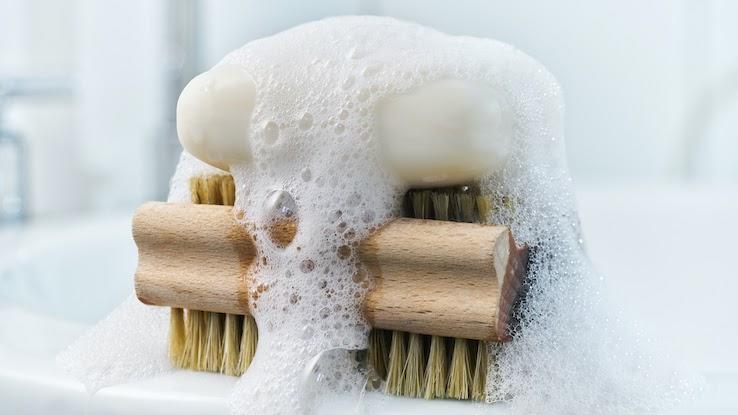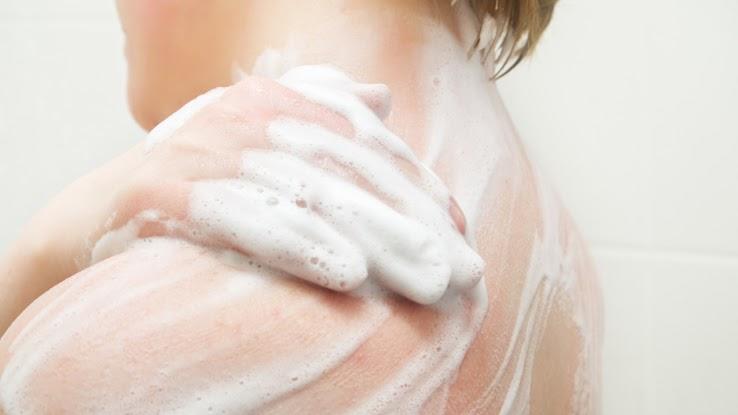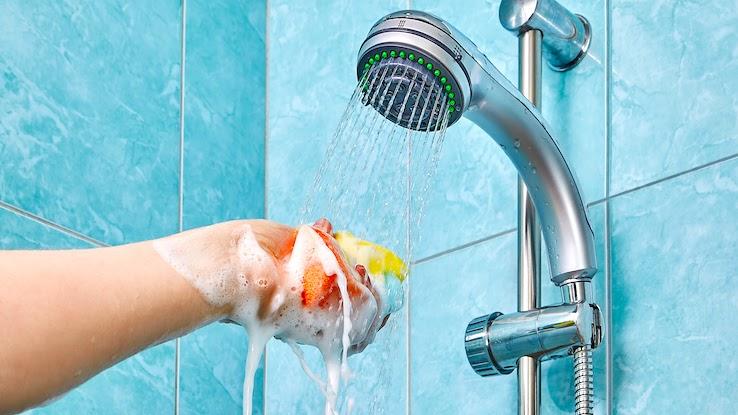
Instead of feeling clean and refreshed after a shower, does your skin feel irritated, dry and even itchy? If so, it might be time to try a different soap. Sensitive skin can become dry, itchy and red if it comes into contact with some of the chemicals that soap contains. If you know you have sensitive skin or have experienced an adverse reaction to soap in the past, it’s time to find the best soap for sensitive skin. Here’s how to get started.
Bar Soap vs. Body Wash: What They Are and What Works Well

Most of what you’ll find in your local store’s soap aisle comes down to two types of products: bar soap and body wash. But which one is better for sensitive skin? Here’s a bit more about the benefits (and disadvantages) of both.
On the positive side, body wash is moisturizing, which is essential for dry skin. On the negative side, body wash tends to be more colorful and fragrance-filled than bar soap, and that’s a problem for skin that’s sensitive to fragrances and dyes.
To some people, bar soap may seem old and antiquated. It’s tough to hold on to, and some people believe that it breeds bacteria — but that’s a myth. When it comes to sensitive skin, bar soap has its benefits. It’s generally milder than body wash, and it doesn’t contain the fragrances or dyes that body wash does. On the other hand, bar soap has a higher pH, which means that it’s more drying to your skin.
So which is best? When it comes to sensitive skin, the answer is bar soap. You may be surprised or a little upset if you’re an avid user of body wash, but bar soap is much more beneficial than body wash. It has less of a chance of irritating your skin, and it’s much easier to find bar soap made for sensitive skin than it is to find specially formulated body wash.
Finding the Best Bar Soap for Sensitive Skin

Now that you’ve eliminated about half of the soap aisle, it’s time to narrow down your choices. You know to look for bar soap — but which kind? The best place to start is by looking at a soap’s ingredient list.
The best rule of thumb for any ingredient list — which you might’ve already heard in regards to foods — is this: If you can’t pronounce the ingredients, it’s probably something you want to reconsider. That same rule applies here. If you have trouble reading through the list or aren’t familiar with the ingredients, don’t buy that soap. Instead, look for a bar soap made with natural ingredients like almond and olive oils. Here are some other tips for choosing a bar soap:
- Avoid soaps with ingredients like dyes, detergents and preservatives, which can be harsh on sensitive skin.
- Look for bar soap with moisturizers. Because bar soap tends to dry skin out, look for one that contains moisturizing ingredients. Soothing moisturizers include aloe vera, vitamin E and sweet almond oil.
- Try an exfoliating soap. If you have dehydrated skin, poor circulation or skin that feels rough and scaly, you may want to try a soap that exfoliates. Choose a natural soap made with orange seed to scrub dead skin cells away.
- Make sure the soap you choose is labeled “fragrance-free.” The word “fragrance” is a blanket term for more than 3,000 chemicals, any of which you may be allergic to. To avoid irritating your skin, make sure the ingredient list does not contain the word “fragrance.” If you can’t stay away from fruit-scented or sweet-smelling soaps, look for those that contain essential oils like lavender or juniper berry.
If you have sensitive skin, you also want to be gentle in how you wash it. For example, avoid using extra-hot water in your shower or bath, as it can dry out your skin and cause irritation. When you’re exfoliating or washing your face, use a washcloth. Loofah sponges can feel too harsh against sensitive skin. Always massage the soap into your skin in a gentle, circular motion to work up a lather. After your shower or bath, be sure to moisturize your skin with a mild lotion or cream.
Now that you know what to look for, it’ll be easier to find a soap that works best for your sensitive skin. Once you see a difference in how your skin feels, you may want to consider looking for makeup, lotion and other products designed for sensitive skin, too.
Resource Links:
“Cleansing of sensitive skin; with determination of the pH of the skin following use of soap and a soap substitute,” National Library of Medicine
“Cleansing Formulations That Respect Skin Barrier Integrity,” National Library of Medicine
“Modern skin cleansers,” National Library of Medicine
“The irritation potential and reservoir effect of mild soaps,” National Library of Medicine





